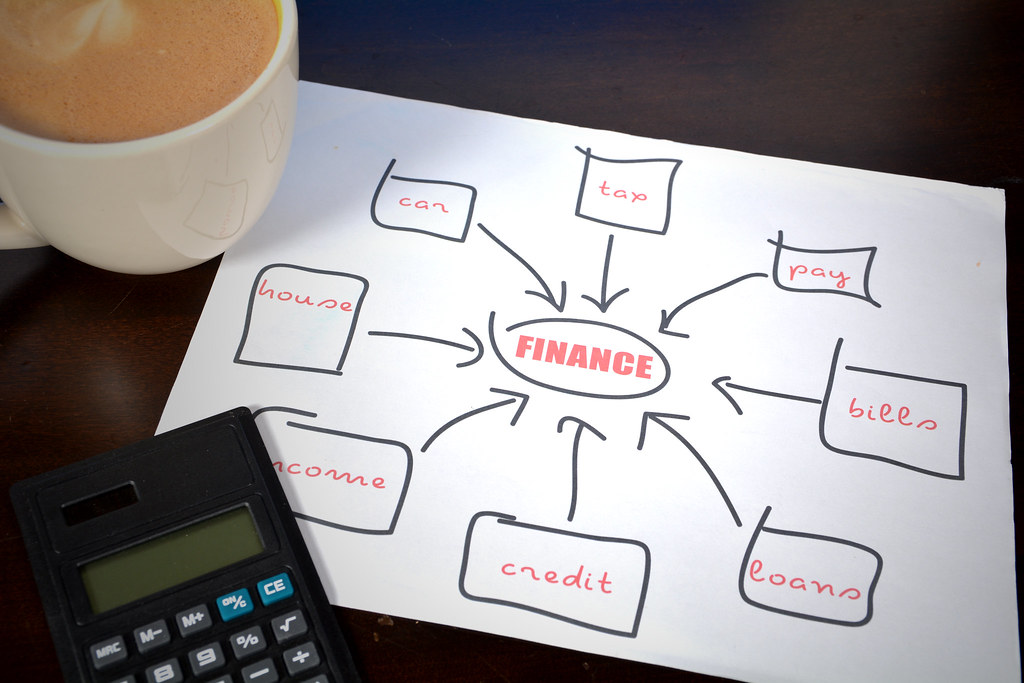The market has been heading up, up and away for so long that many investors may not remember (or even experienced in some cases) what it was like to invest during times of extreme volatility. However, the bull market has to end sometime—and probably for longer than a single quarter like we saw at the end of last year.
So how do you go about making investment decisions when it becomes very challenging to find positive returns? It can be tempting to switch out your entire portfolio when there’s a sudden change, but that may not be the wisest move.
Before making any changes, you should consult your financial roadmap, and if you don’t have one, then now is an excellent time to make one.
The Securities and Exchange Commission advises investors to look at their entire financial picture before making any big changes. This step-by-step guide will help you get everything down on paper.
#1. Set goals

To start creating your financial roadmap, write down any goals that you have. Perhaps you want to purchase a new home in 10 years. You’ll also want to determine when you want to retire, although this age could change over time if you discover that you can’t retire as early as you want to.
Decide what types of things you want to save money for, whether it’s a new home or car, an education, retirement, medical bills, a “rainy day” fund, or anything else.
Don’t forget to set timelines for each goal so you have an idea of when you might be able to achieve these goals realistically. The SEC has a number of calculators and other financial tools to help you set realistic timelines for your goals.
#2. Look at your current financial picture.

Most investors already know the basics, but pulling everything together into a roadmap might seem a bit overwhelming because it can be so easy to forget something.
Even though you may think you know everything you need to know about your current financial picture, just having all of it down on paper will help you get organized. Make a list of all your liabilities and assets, including individual holdings in your portfolio[s].
List all your checking and savings accounts and their balances, the cash value of your life insurance policies, real estate, home, retirement accounts and other investments, and any personal property.
Knowing which stocks or other assets you have money in can make it easier to decide where you want to move your money when the market turns.
On the liability side, list your mortgage, credit card and bank loan balances, car loans, student loans, and any other liabilities. Add up your assets and liabilities and subtract your liabilities from your assets to see your net worth. If you have a negative net worth, you can start making plans to get on track.
The Foundation for Financial Planning has some excellent worksheets to help you get started with making your lists so you don’t forget anything.
#3. Consider your risk tolerance before making any changes.

After you’ve made a list of all your investments and assets, it’s time to think about your risk tolerance. As the winds of the market shift around, risk sentiment will move as well. There is no such thing as an investment that is 100% safe.
A good guideline for determining the best mix of risk in your investments is to subtract your age from 120 and put that percentage of your portfolio in stocks and the other percent in bonds.
For example, a 40-year-old would put 80% of their portfolio in stocks and the remaining 20% in bonds.
Of course, there are many other asset classes to consider too, and picking stocks is literally a full-time job. Thus, you may want to consider an index fund for your stock holdings if you just want to set it and forget it.
However, if you want to take on a bit more risk in part of your portfolio, there are many actively managed funds with excellent track records to take the guesswork out of stock picking.
As you’re setting out all your investments and thinking about making changes, make sure your portfolio is properly diversified so that when one asset falls, another one gains to make up for the loss in the other one.
Think over every potential change carefully before making a move to avoid unnecessary turnover and fees associated with trading. The SEC also has a handy guide here which explains more about investing and creating a financial roadmap.
This article originally appeared on ValueWalk. Follow ValueWalk on Twitter, Instagram and Facebook.

